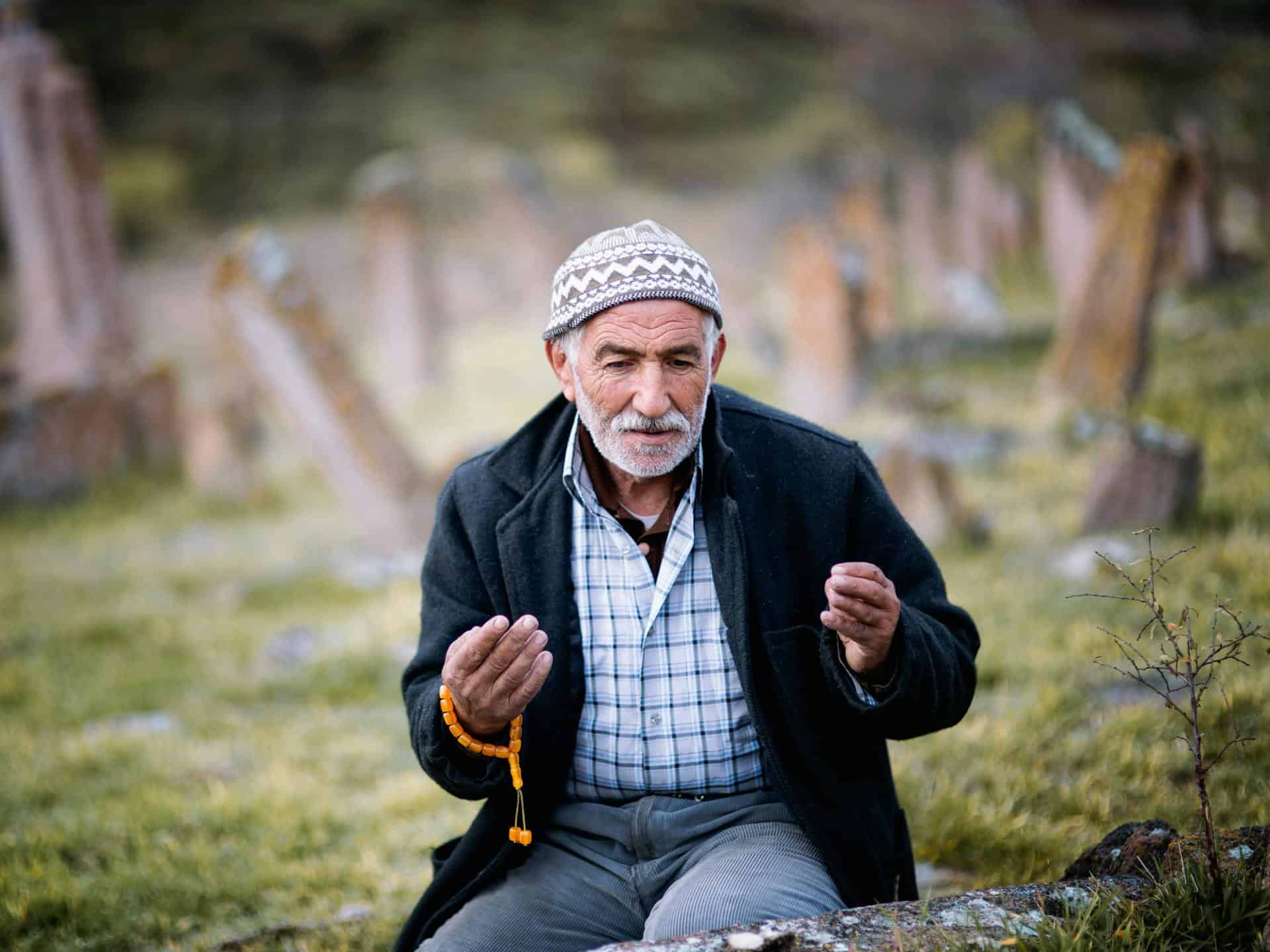
In the Name of Allah—the Most Compassionate, Most Merciful.
Visiting the grave is a practice taught in Islam to remind Muslims of death and the afterlife.
It is not just a time to mourn but a way to pray for those who have passed and can not pray for themselves anymore.
The Prophet (صلى الله عليه وسلم) said in a hadith,
Here are some specific du’as reported in authentic sources that should be read during these visits.
Dua for placing the deceased in the grave
At the time of burial, the following words were used by the Prophet (صلى الله عليه وسلم):
Translation: O Allah, forgive him. O Allah, give him firmness.
Transliteration: Allahumma ighfir lahu, Allahumma thabbit’hu.
This Islamic dua is a request for forgiveness and support for the one being buried during questioning.
Don’t forget the graves etiquette while visiting graveyards.
Dua after burying the deceased
After burial, companions of the Prophet (صلى الله عليه وسلم) would pause and say:
Translation: O Allah, make him firm at the time of questioning.
Transliteration: Allahumma thabbit’hu ‘inda as-sual.
Such cemetery prayers are part of the burial process. They are read quietly once the grave is closed.
Dua for the deceased when it’s a child
When a child passes away, this prayer is narrated from the Prophet (صلى الله عليه وسلم):
Translation: O Allah, make him for us a precursor, a forerunner, and a cause of reward.
Transliteration: Allāhumma’j`alhu lanā faraṭan, wa salafan, wa ajra.
This dua is recited to comfort the family and acknowledge the child’s future role in the afterlife.
Dua for condolences
This dua is widely used when expressing sympathy for the deceased:
Translation: Truly, we belong to Allah and truly, to Him we shall return.
Transliteration: Inna lillahi wa inna ilayhi raji’un.
Such du’as are a reminder that all lives will return to their Creator.






